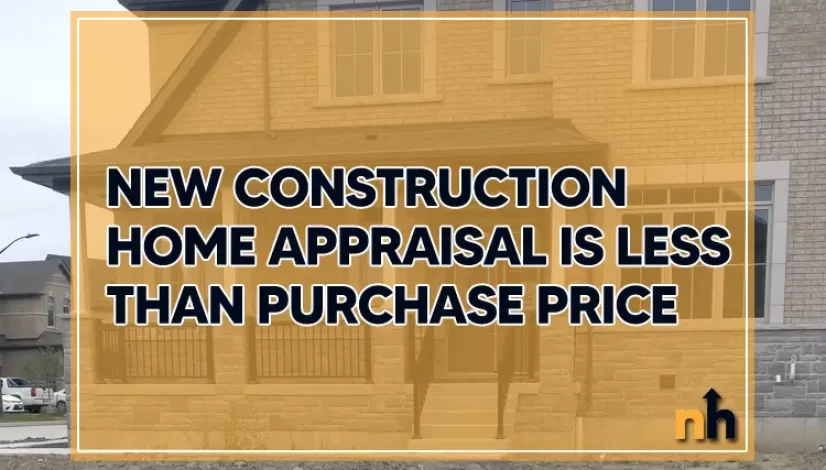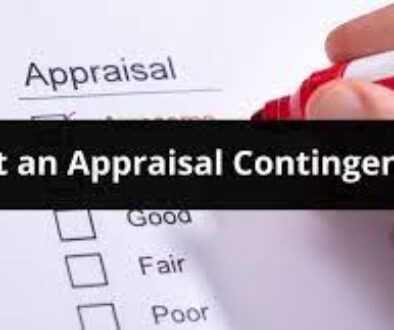Appraised for Less than the Sale Price
What Does A Low Appraisal Mean?
A “house appraises low” if the value assessed by the home appraiser is lower than the purchase price agreed to between the buyer and seller. The home appraisal provides a snapshot of the appraiser’s opinion of the current market value based on similar closed sales in the area.
When the appraised value comes in below the contract price, it limits the amount a lender will finance because they base the loan on the appraisal. A low appraisal might delay or even derail your closing.
While this might sound alarming, it’s important to keep in mind that your real estate agent can help you manage the appraisal process and keep your sale or purchase on track to closing.
What Causes Low Appraisals?
There are many factors that can hurt a home appraisal. Let’s go over some of the common causes of a low appraisal:
- The appraiser used outdated information: Confirm that the most recent information on comparable properties was used as it’s important to get an accurate appraisal. Since houses regularly sell over asking price, it is imperative to get accurate info if you’re selling in a competitive market.
- The appraiser didn’t include home improvements: If an appraiser leaves out information on significant home improvements or can’t find appropriate comparisons in the area, the appraisal could come back lower and be less accurate.
- Local homes are appreciating: Low appraisals can also be a problem in neighbourhoods with homes that are rapidly appreciating. Since the properties have appreciated so quickly, the comps may not reflect the prices that the sellers currently offer.
Know that, if your appraisal comes back low and you think it’s inaccurate, there are ways you can appeal.
What Happens If The Appraisal Is Lower Than The Purchase Price?
If an appraisal comes in lower than the purchase price when a property is being bought, it can be bad news for the buyer and the seller. When an appraisal comes in low, the buyer’s mortgage lender will not lend more than the appraised value.
Another part of why lenders do not exceed the appraised value has to do with loan guidelines. Lenders use the appraised value to calculate your loan-to-value (LTV). Here’s an example of how this can play out:
Say you’re using a conventional loan to pay for a $200,000 house. The maximum LTV for this loan is 97%, or $194,000. If the home appraises for only $190,000, you’ll need to find a way to make up the $4,000 difference.
What To Do If You Get A Low Appraisal
If you do get a low appraisal, there are a couple of actions you can take.
Parties Can Request A Second Look
Your real estate agent will take the lead in pushing back on a low appraisal. If they find a discrepancy in the report, they can ask for a correction/revision. Some common problems that can lower an appraised value include miscalculation of square footage or failure to include garages/sheds or recent renovations.
In general, by submitting proof of the oversight and working together with the lender, your agent should be able to get the closing back on track. Your closing might be delayed, however, and you may have to pay for an additional appraisal that is based on the additional information submitted by your agent.
Buyer Makes Up The Difference In Cash
In a sellers market where sellers hold more negotiating power, they’ll have little incentive to lower their price in response to a low appraisal. In all likelihood, buyers will have to make up the difference between the loan amount the lender is willing to offer and the purchase price.
Buyer And Seller Renegotiate The Purchase Price
In a buyer’s market, where the buyer holds more negotiating power, a motivated seller might be incentivized to renegotiate the purchase price – especially if they are really ready to sell their home. As a buyer, it doesn’t hurt to try and figure out a new purchase price with the home seller.
Buyer Exercises Their Appraisal Contingency
If the purchase agreement contains an appraisal contingency, the buyer is protected in the case of a low appraisal. If the buyer can’t get the seller to adjust the price or come up with the difference in cash, they can walk away from the sale with their earnest money deposit returned to them.
Buyer Walks Away From The Sale
If the buyer can’t come up with more cash, the seller won’t move on the price and the lender won’t budge, the buyer may have no choice but to back out of the sale.If the purchase agreement doesn’t contain an appraisal contingency, they will, unfortunately, lose their earnest money deposit.
If you’re in the position of having to walk away, take solace in the fact that you may have dodged a bullet. If the house isn’t worth what you’re willing to pay, you could end up underwater on your mortgage.That would mean you’d be unable to sell without absorbing the loss of the difference between what the home sells for and the balance owed on the mortgage loan.
Similarly, you’d have a hard time refinancing your home because of your too-high LTV ratio.
How To Negotiate With A Seller After A Low Appraisal
Sellers don’t want the sale of their home to fall through, and they know that if a home appraises low it will be difficult to get the price they’re asking. On top of that, if there’s an appraisal contingency in the purchase agreement, a buyer can back out of the sale no questions asked without losing their earnest money deposit.
In this situation, negotiating is the best option for the buyer and seller. Here are a couple things you can do to start negotiations:
- Check with your lender to see if a second appraisal can be requested. Note: You’ll need to submit additional information to show the first appraisal was deficient.
- Approach the seller about reducing the asking price.
- Talk to your real estate agent.
- Do your research and know your leverage.
Tips To Avoid A Low Appraisal
While low appraisals may be uncommon, they do occur. It’s best to be prepared for the possibility of this situation so you’re not caught off guard. Whether you’re selling or buying, be prepared. Review these home appraisal tips so you know what to do to keep the process moving and not have the transaction fall through.
Tips For Sellers
The work you can do as a seller to avoid a low appraisal is all about being prepared. Make it easy for the appraiser and be engaged in the process.
Here are some tips on how to start the process on the right foot:
- Prepare the home inside and out.
- Be prepared to answer any questions the appraiser may have.
- Have a list of upgrades and dates of completion available.
Tips For Buyers
If you’ve signed a purchase agreement and put in your good faith deposit, you’re already invested in the property. It can really wreck your plans if the appraisal comes in low and you don’t have a back-up plan in place. Being ready for this possibility will make the process smoother should a low appraisal scenario occur.
Here are some tips on how to deal with a low appraisal:
- Be thoughtful about the original bid put in on a home.
- Review your copy of the appraisal.
- Ask your lender if it’s possible to order a second appraisal.
- Negotiate the price.
- Bring cash to the closing table to make up the difference.
- Consider an all-cash offer.




